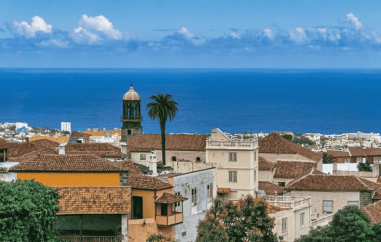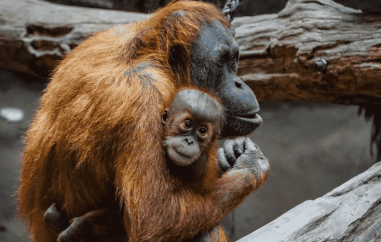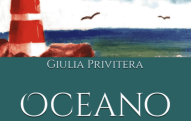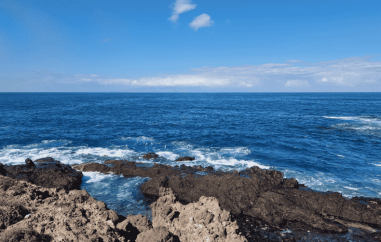Tourism Challenges in the Canary Islands: Lessons from Botswana's Safari Model
 In the apparently tranquil expanse of the Canary Islands, a balancing act ensues between the economic benefits of tourism and the imperative of preserving the islands' natural and cultural heritage. As stakeholders grapple with the challenges posed by mass tourism, maybe it is worth looking to Botswana's success in safari tourism for insights into sustainable development strategies.
In the apparently tranquil expanse of the Canary Islands, a balancing act ensues between the economic benefits of tourism and the imperative of preserving the islands' natural and cultural heritage. As stakeholders grapple with the challenges posed by mass tourism, maybe it is worth looking to Botswana's success in safari tourism for insights into sustainable development strategies.
Botswana, faced with similar challenges in the 1980s, implemented measures to limit visitor numbers and attract high-value tourists, transforming itself into a luxury safari destination. Can the Canary Islands replicate this model to manage their tourism industry effectively?
The Canary Islands, blessed with stunning landscapes and a mild climate, have long been a magnet for tourists seeking sun, sea, and sand. However, the rapid growth of tourism has led to concerns about environmental degradation, overcrowding, and unequal distribution of wealth. While tourism contributes significantly to the islands' economy, accounting for 60%-70% of GDP, the strain it places on infrastructure and resources is becoming increasingly apparent.
One of the challenges facing the Canary Islands is their limited land area. Sixty percent of the territory is protected, leaving only 40% available for development. Despite this, the population has nearly doubled in the past 50 years, exacerbating pressures on infrastructure and natural resources.
To address these challenges, some advocate for limiting tourism growth to protect the islands' natural and cultural heritage. However, others argue that tourism is vital to the islands' economy and that any measures to restrict it must be carefully balanced. Moreover, there is a need to address inequality within the tourism sector, as much of the revenue generated from tourism is concentrated in the hands of a few, leaving many communities underserved.
The Canary Islands can draw valuable lessons from Botswana's experience in managing its tourism industry. In the 1980s, faced with growing concerns about the impact of tourism on its wilderness areas, Botswana implemented measures to limit visitor numbers and attract high-value tourists. By increasing park fees and focusing on luxury safari experiences, Botswana transformed itself into one of the world's most sought-after safari destinations.
Botswana's approach to safari tourism centered around several key principles:
-
Quality over Quantity: Botswana recognized that attracting fewer, high-value tourists would not only mitigate the environmental impact of tourism but also generate greater revenue per visitor. By offering exclusive safari experiences in pristine wilderness areas, Botswana positioned itself as a premium destination for affluent travelers seeking intimate wildlife encounters and luxurious accommodations.
-
Environmental Conservation: Botswana prioritized the conservation of its natural heritage, implementing strict regulations to protect its wildlife and ecosystems. By limiting visitor numbers and focusing on low-impact tourism practices, Botswana minimized the negative effects of tourism on its environment while preserving its biodiversity for future generations.
-
Community Involvement: Botswana's tourism model emphasized the involvement of local communities in the management and benefits of tourism. Through initiatives such as community-based tourism and revenue-sharing schemes, Botswana empowered local residents to participate in and benefit from the tourism industry, fostering a sense of ownership and stewardship over their natural resources.
-
Infrastructure Development: Botswana invested in high-quality infrastructure and tourism facilities to enhance the visitor experience while minimizing the impact on the environment. By developing well-designed lodges, safari camps, and transportation networks, Botswana ensured that tourists could enjoy comfortable and convenient access to its wilderness areas without compromising their ecological integrity.
The success of Botswana's safari tourism model serves as a compelling example for the Canary Islands as they seek to navigate the complexities of tourism development. By adopting similar principles of quality over quantity, environmental conservation, community involvement, and infrastructure development, the Canary Islands can create a more sustainable and resilient tourism industry that benefits both visitors and residents alike.
However, replicating Botswana's model in the Canary Islands poses its own set of challenges. Unlike Botswana, which boasts vast wilderness areas and relatively low population density, the Canary Islands are more densely populated and have limited land available for development. Additionally, the islands' economy is heavily reliant on tourism, making any measures to restrict tourism growth politically and economically sensitive.
Despite these challenges, there are opportunities for the Canary Islands to adapt Botswana's principles to their unique context. By focusing on high-value, low-impact tourism experiences, investing in environmental conservation and community development, and promoting sustainable tourism practices, the Canary Islands can create a more resilient and sustainable tourism industry that balances economic prosperity with environmental protection and social equity.
In conclusion, the Canary Islands have much to learn from Botswana's success in safari tourism. By embracing the principles of quality over quantity and adopting a holistic approach to tourism development, the Canary Islands can chart a sustainable path forward that benefits both visitors and residents alike. With visionary leadership, strategic planning, and a commitment to sustainability, the Canary Islands can create a tourism industry that not only enriches the lives of visitors but also preserves the islands' natural and cultural heritage for future generations.









































